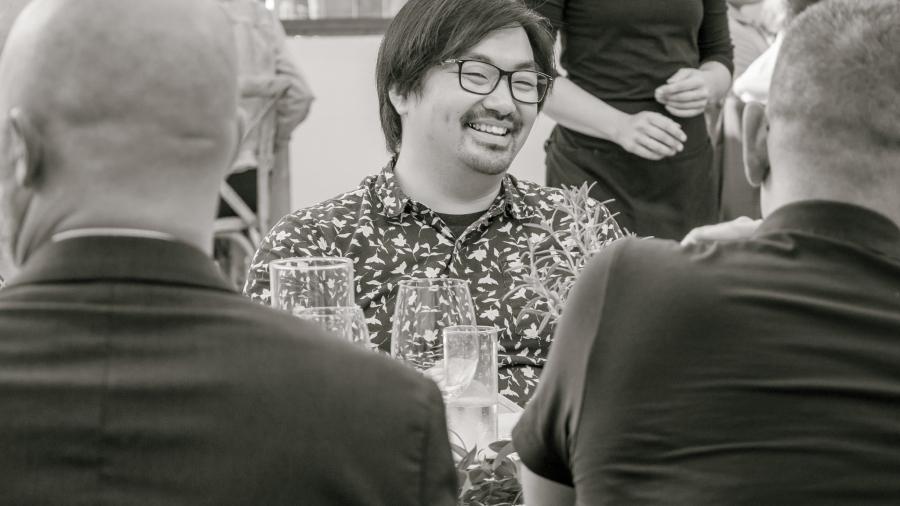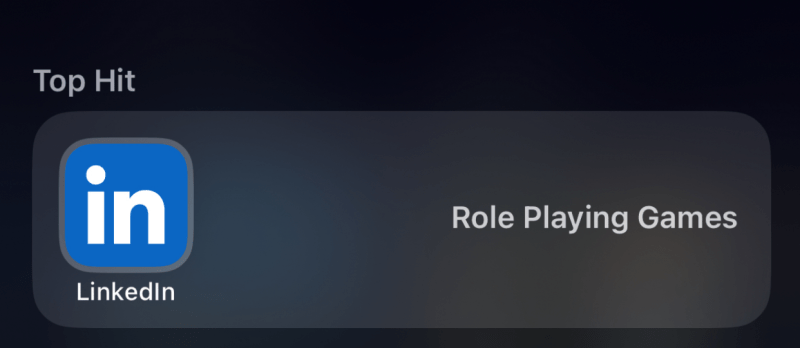CATLab Blog Is LinkedIn a "Role Playing Game"?

In this blog, CATLab Director of Engineering Mike Ryu reflects on the 2024 CATLab summer and authenticity online.
A little while ago, when my wife searched “LinkedIn” on her phone, this came up. Her phone, for some reason, had categorized the app as a “Role Playing Game.” In the moment, I felt that this silly bug had poignantly summarized my (now-outdated) perception of LinkedIn.
At the time, my most recent stint at a nine-to-five office job—building software for a for-profit tech corporation—was still the primary feature of my career journey. At the end of the day, the purpose of my employment at the company was to make more money for the stakeholders. As much as I enjoyed my job at the time, it did not satisfy my need to fulfill a greater sense of purpose.
With that, whenever I was put in a place to talk about my professional journey, I felt an enormous amount of (perhaps self-inflicted) pressure to play this role playing game: to over-animate my positive emotions about the job and to demonstrate an artificially inflated level of excitement. Because, as much as I could go on and on about how amazing it is to build the right products for our customers, I had seen how even such obviously “right” intentions could be tossed out the window if the dollars did not agree with those intentions. Without any genuine sense of purpose, I understand now it was only natural how I came to form such a cynically skewed view of LinkedIn as well as the other opportunities for professional networking at that time.
However, now that I just spent a truly remarkable summer as the Director of Engineering at Center for Applied Technologies Lab (“CATLab”), I realize that making a post such as this is no longer “role play,” but a heartfelt, figurative shouting off the rooftops about how grateful I am for the privilege I have had to lead a team of student software engineers, data analysts, and creatives with a purpose: sustainable, equitable good for all humanity, starting with serving the community we reside in: Westmont College.
Kicking off the first year of honoring the $500,000 Fletcher Jones grant to develop AI applications with amazingly talented student engineers at Westmont, we got to put our heads together to dig deep on the problems that one of Westmont’s faculty members, Dr. Ben Carlson, highlighted as ripe opportunities for applying AI solutions. Something we try to always keep in mind is that our AI solutions rely on the organized, powerful data that is the legacy of the esteemed members of our CATLab community. As we developed our skills to set the foundations of AI development at CATLab, we also set aside time to learn the fundamentals of ethics and how they intersect with the technologies of today.
As a culmination of our work this summer, we got to present our framework of purpose-driven AI at the 7th annual Impact Conference, standing shoulder-to-shoulder to many other industry leaders. I am incredibly proud of my student engineers’ accomplishments this summer, and I look forward to sharing the future of our journey—never as any act in a role play, but as a genuine report of the purposeful work we do here at CATLab and Westmont College.
